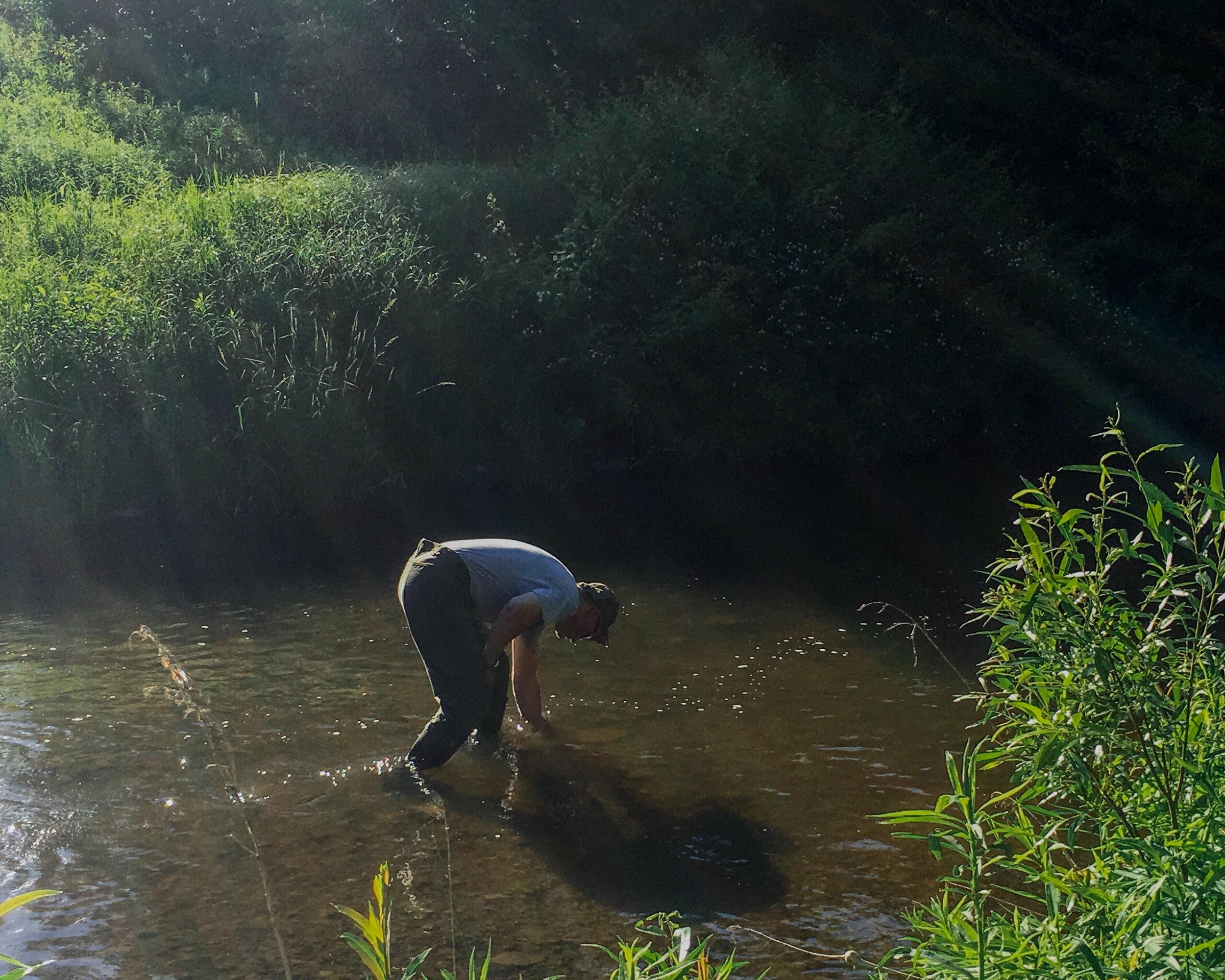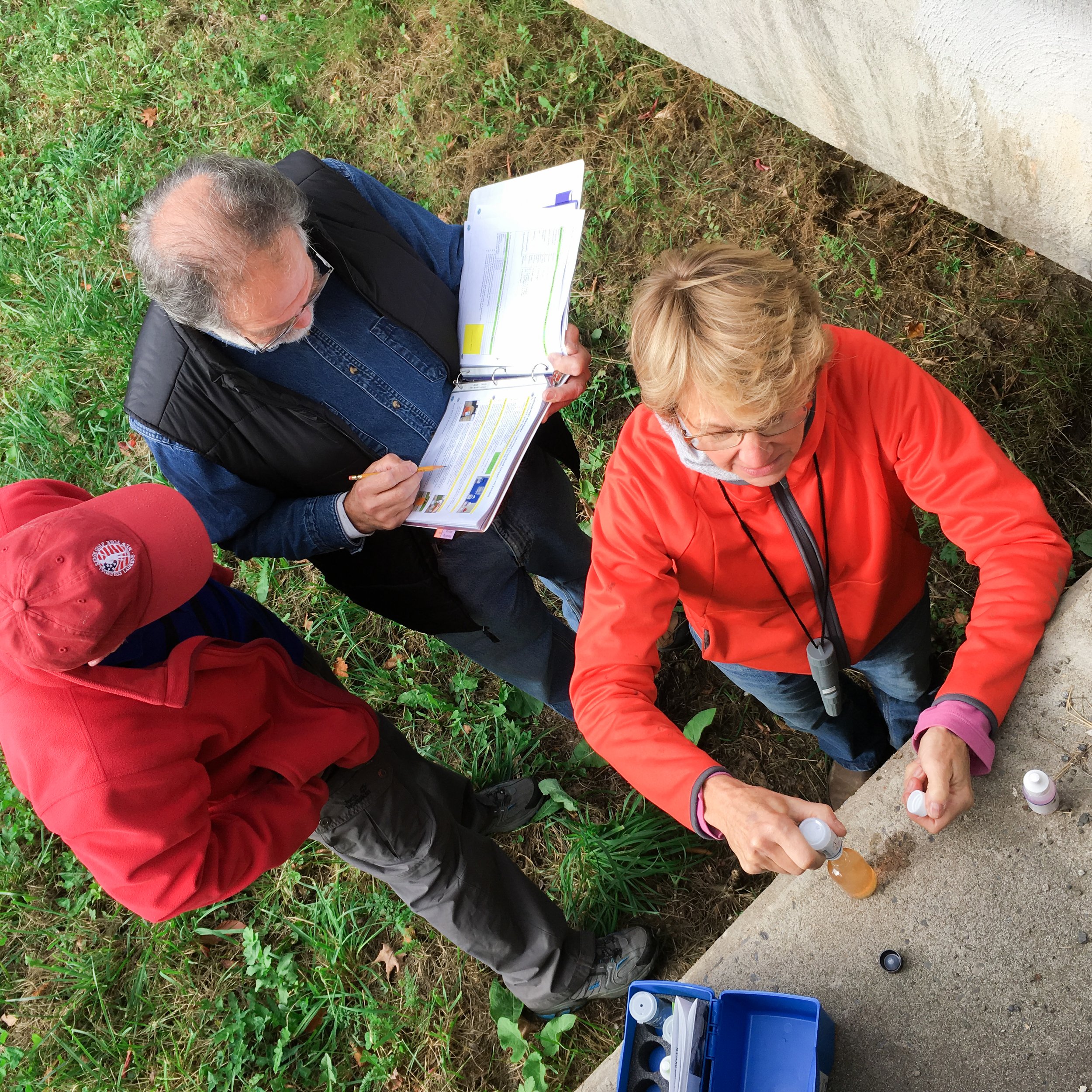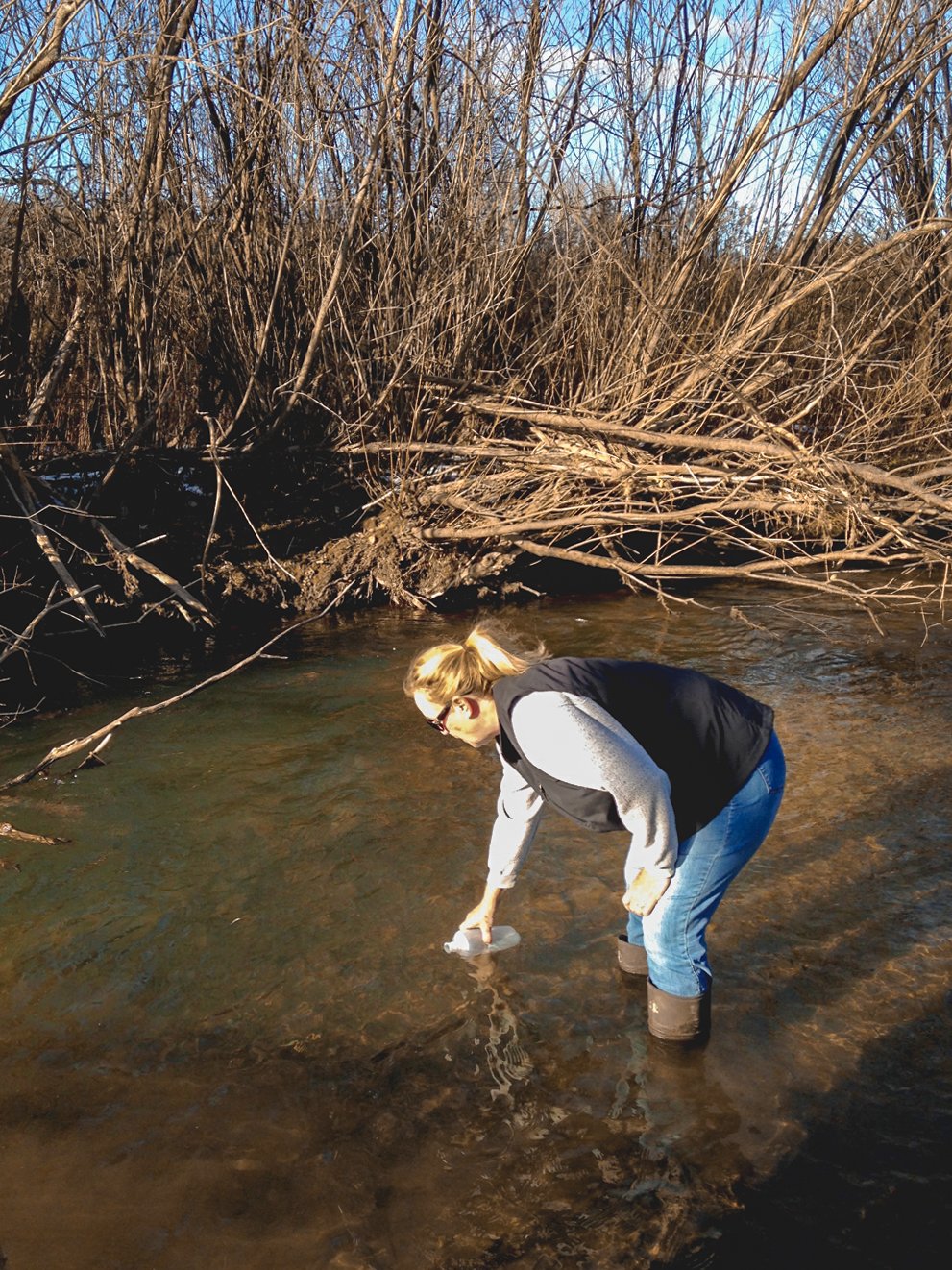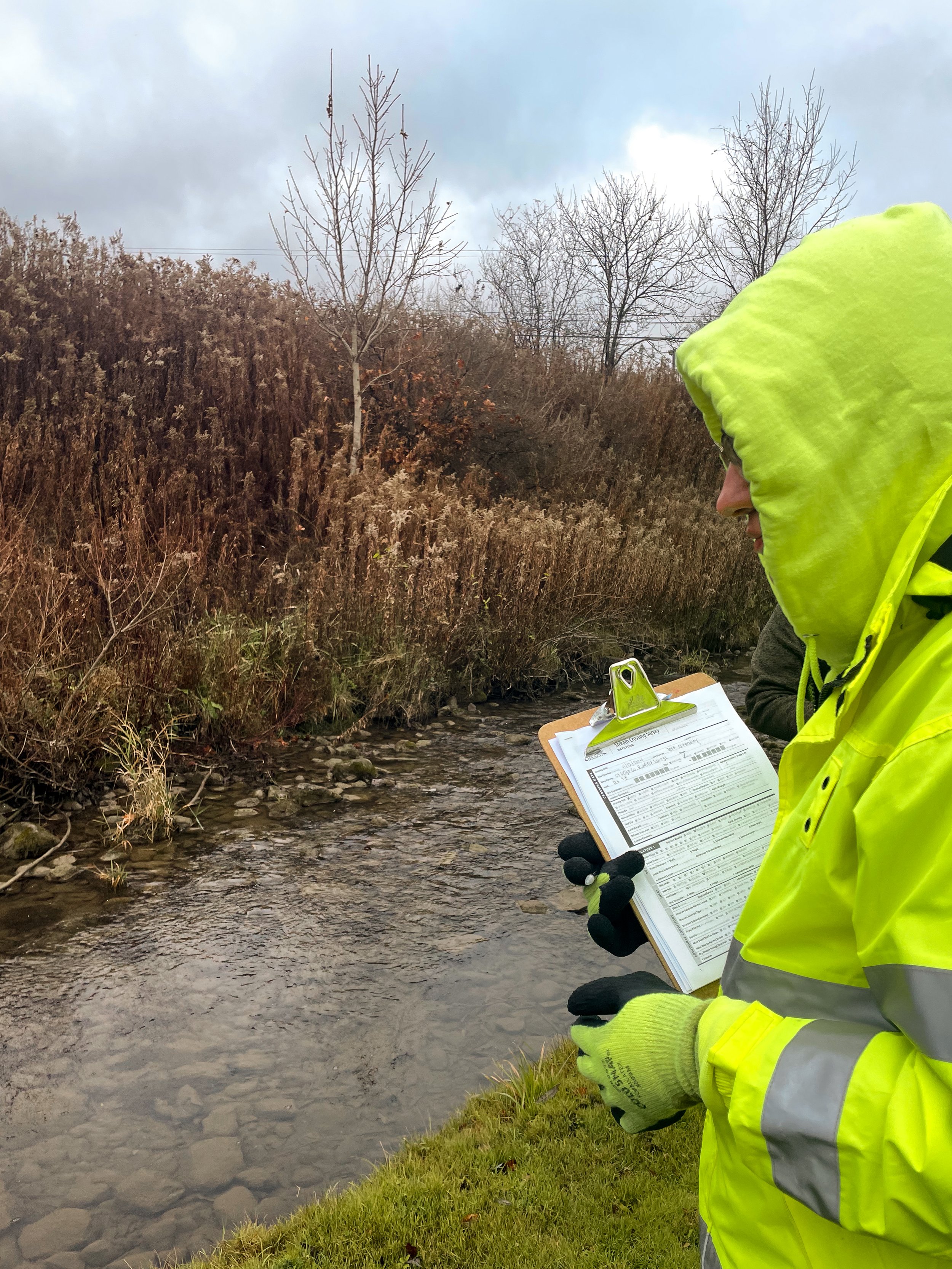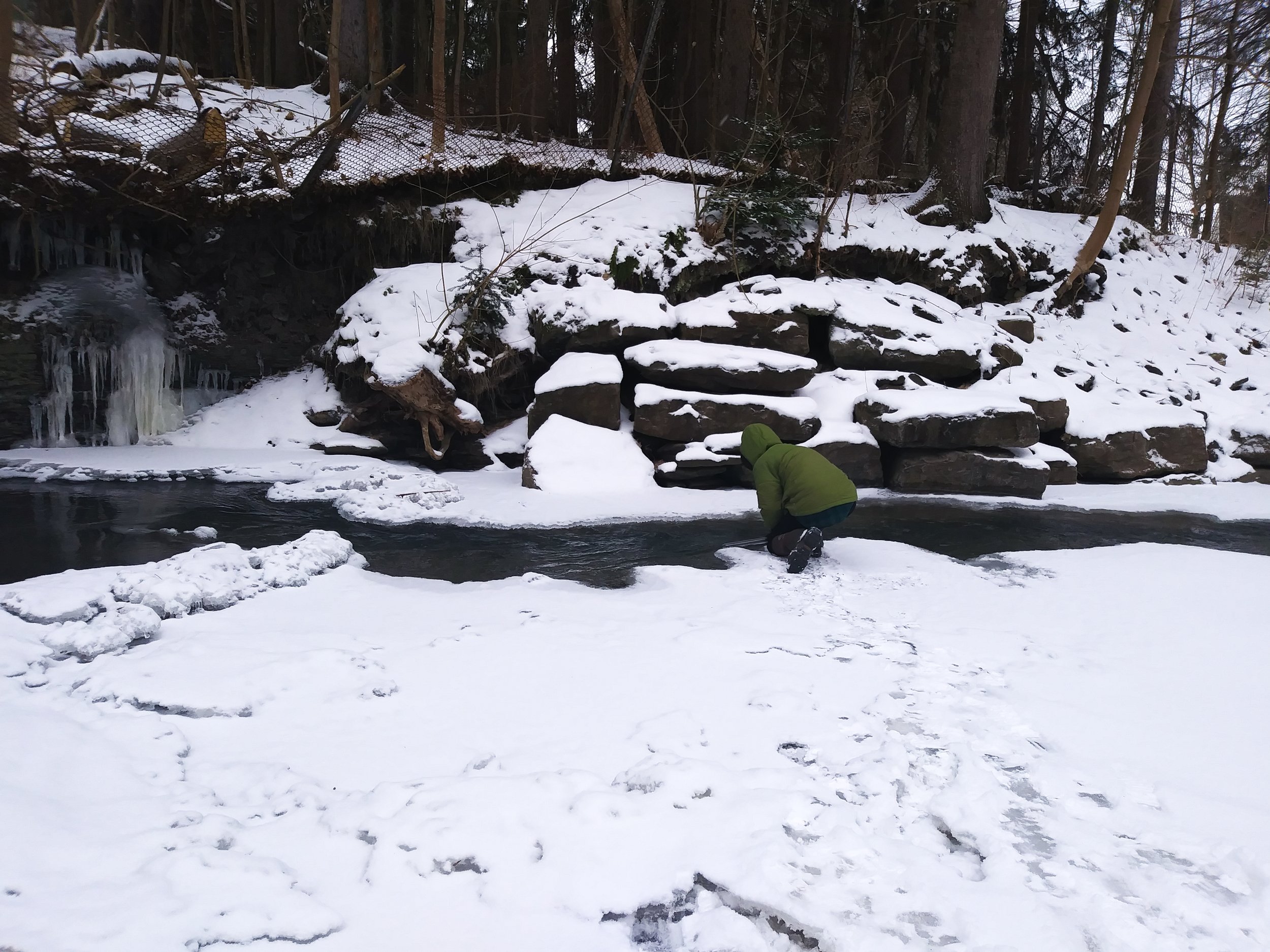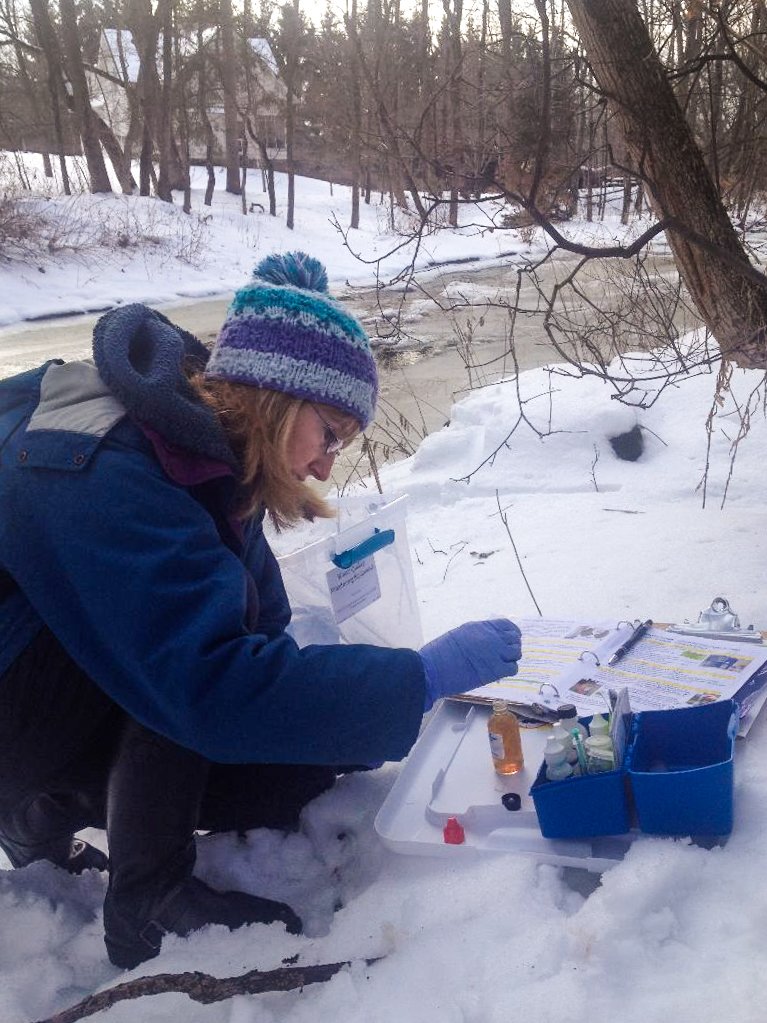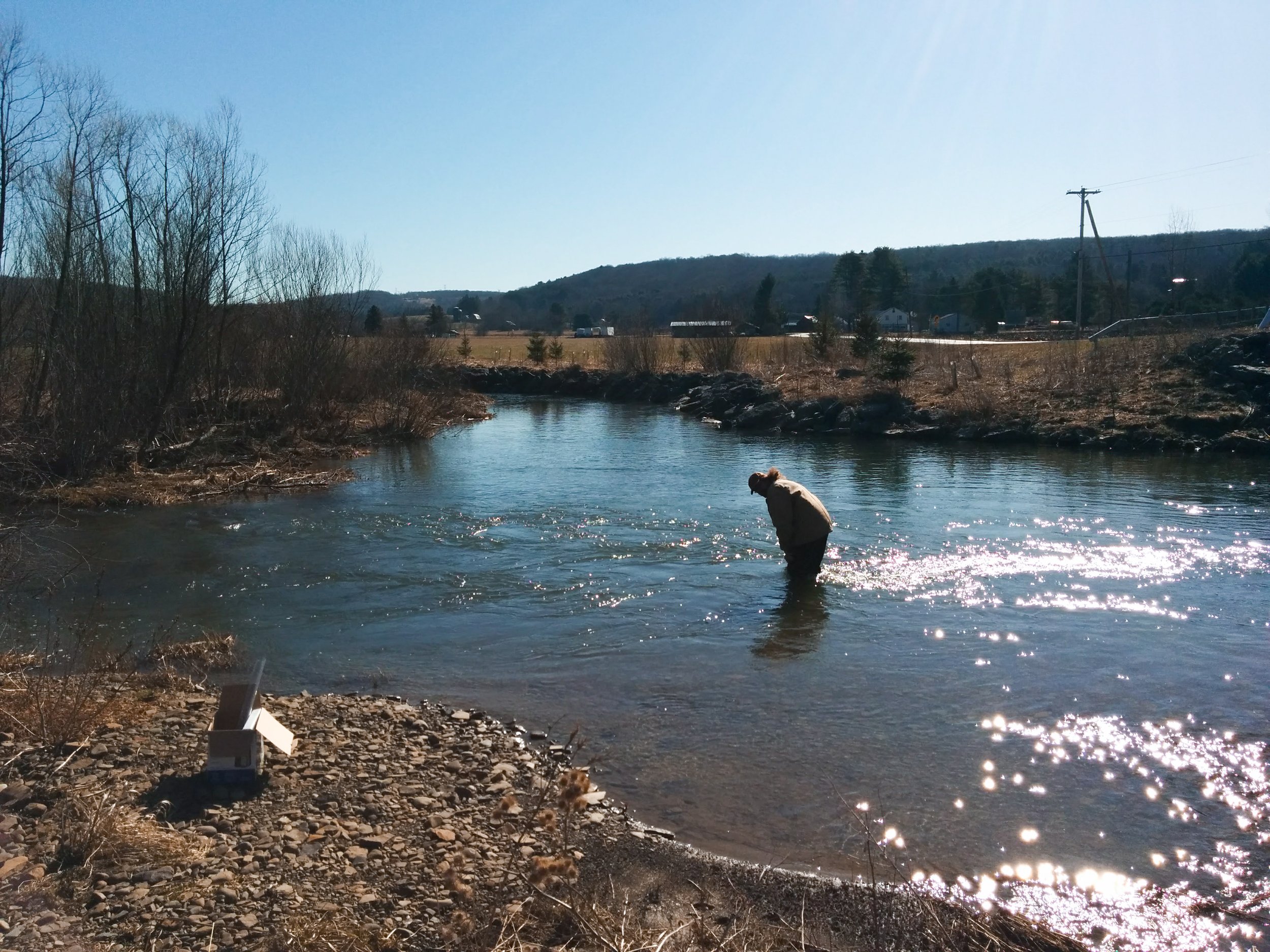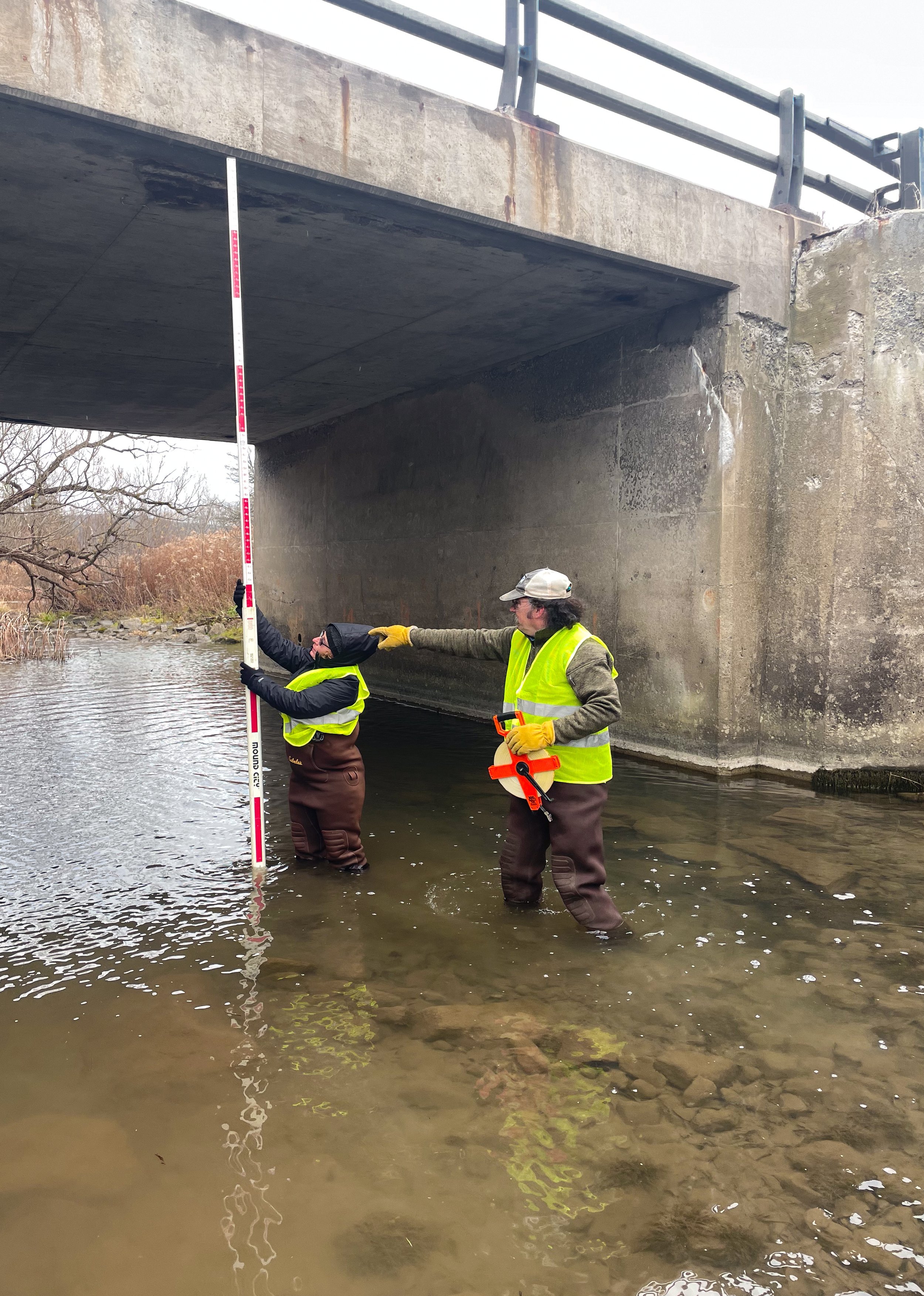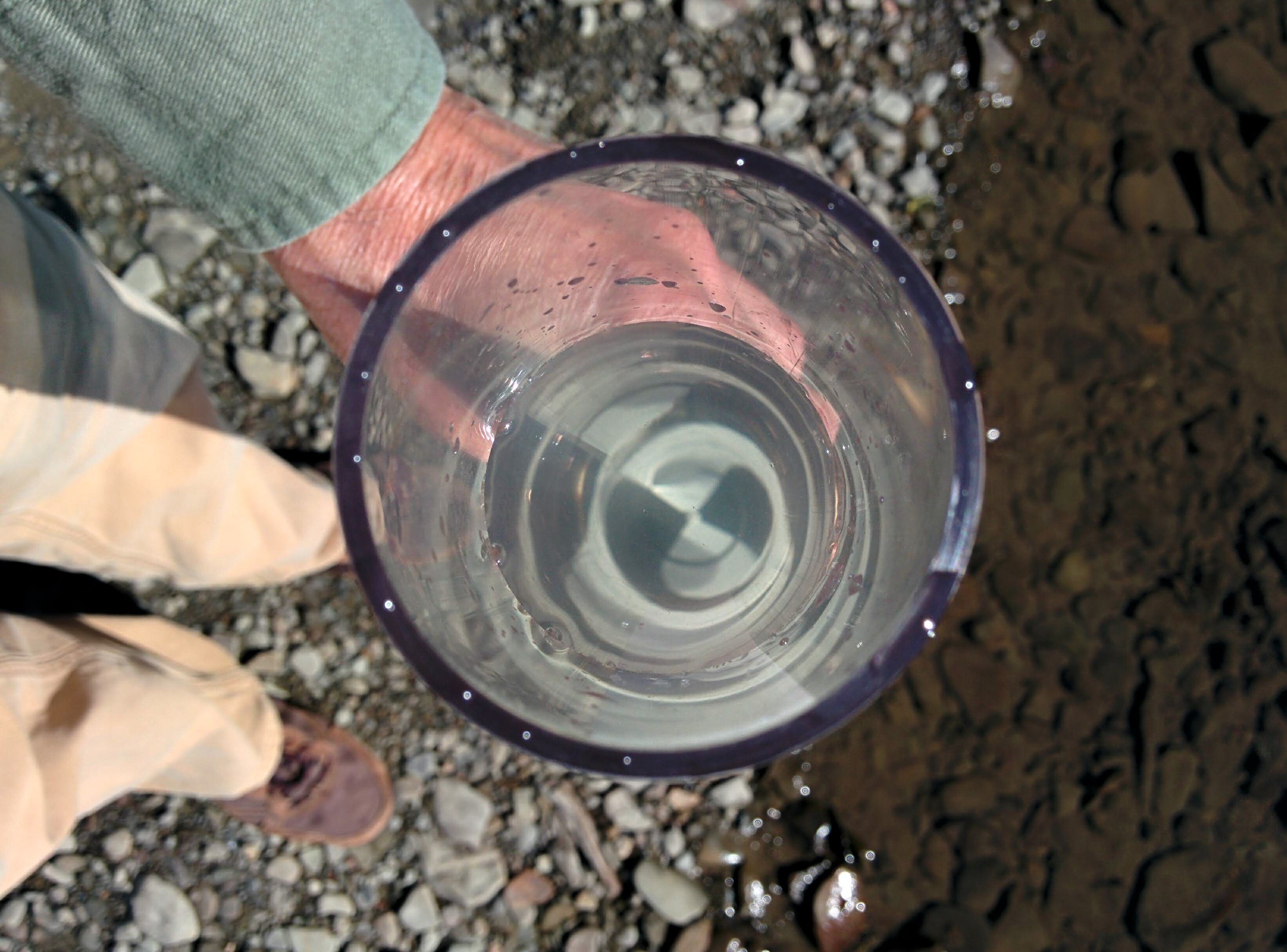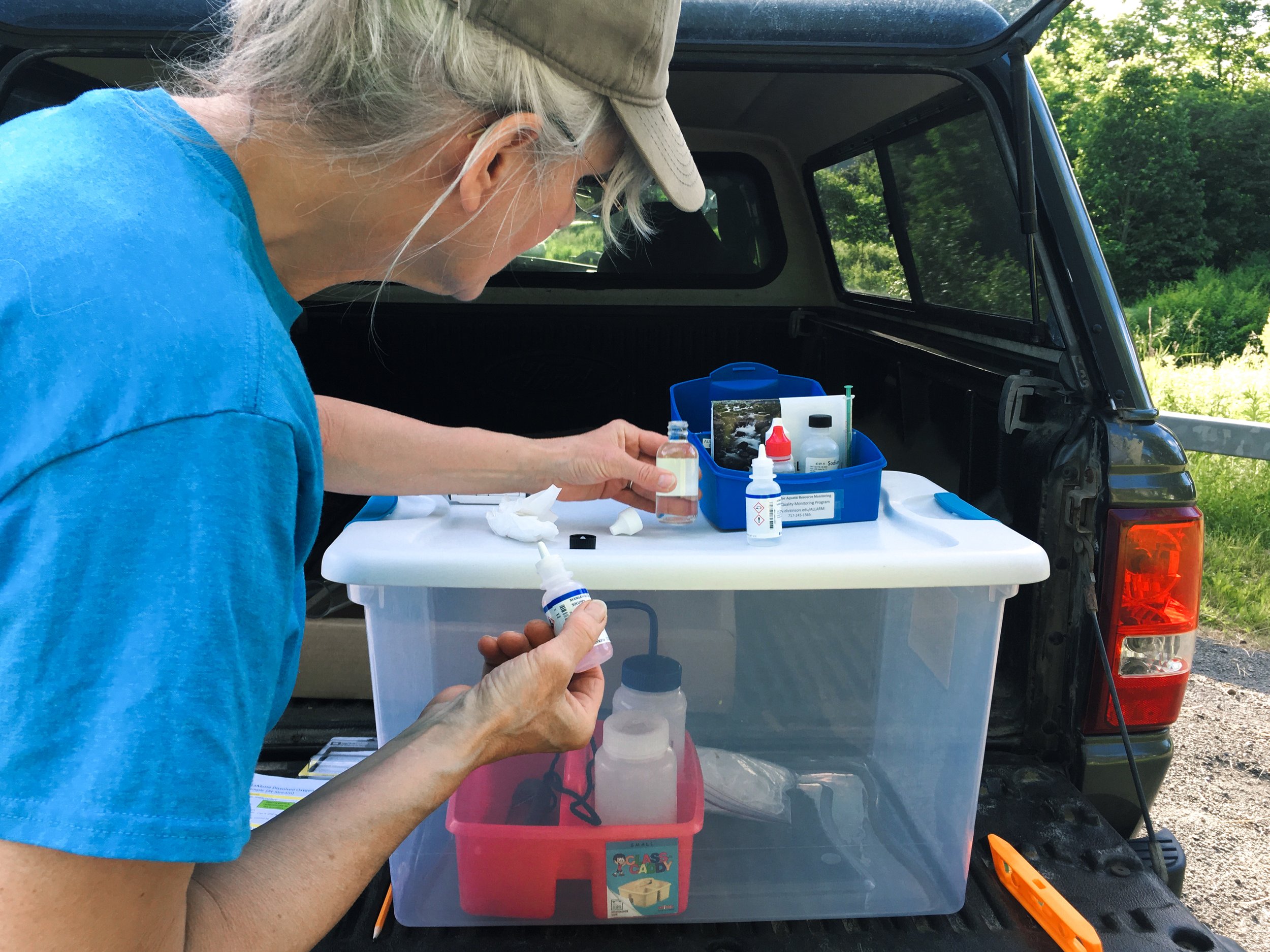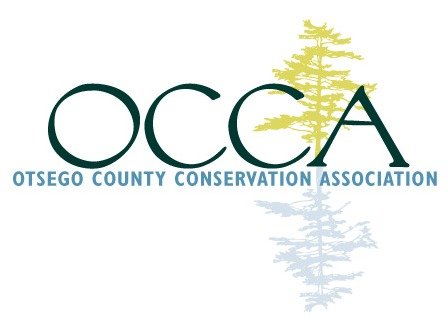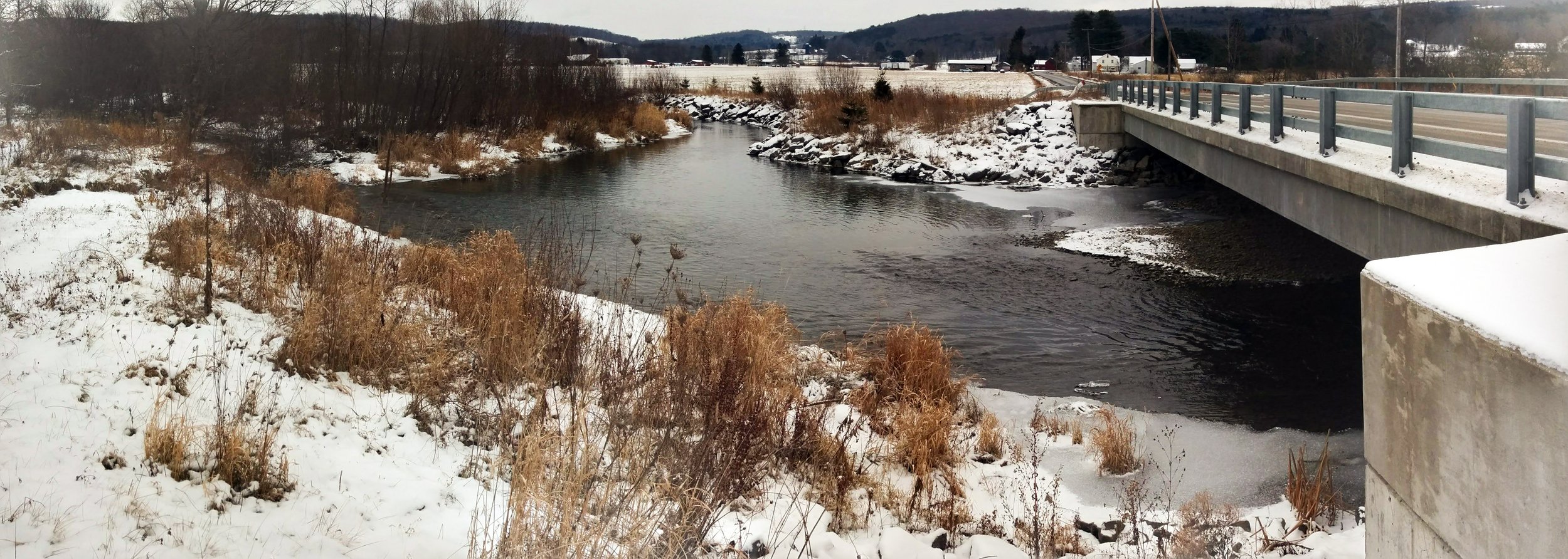
Community Science is…
a program designed for people who want to make a difference. Committed volunteers regularly come together in the field to collect meaningful data that helps with watershed protection, restoration, and climate resiliency. Make a big splash and become a volunteer!
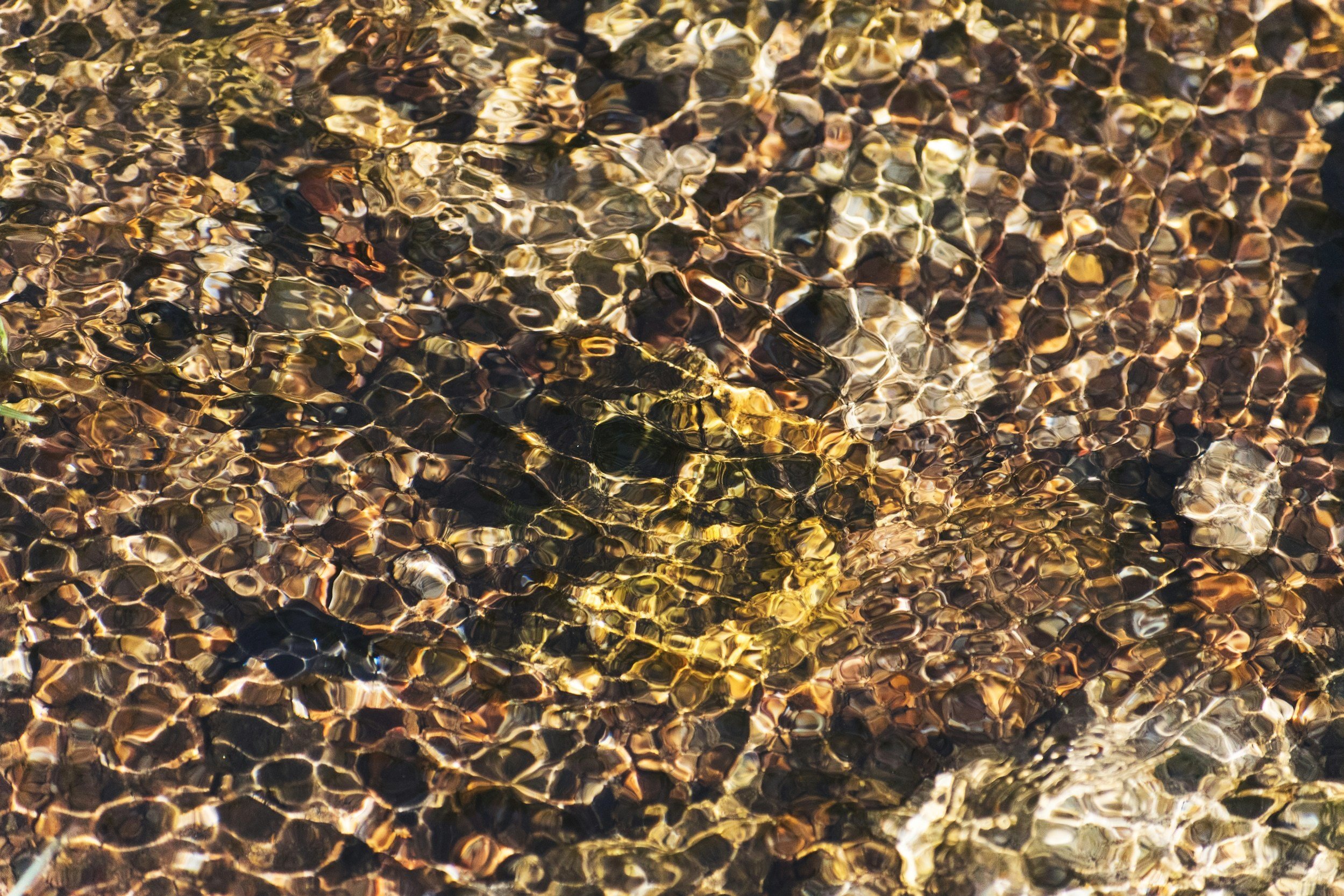
Click to learn more:
-
Stream Team volunteers collectively monitor over a dozen stream sites that are a part of the Chesapeake Bay watershed. Once a month, our community of volunteers gather at their designated stream sites, report on environmental conditions, collect water quality samples, and log data. The water doesn’t stop flowing, and neither do our volunteers. Stream Teams operate year-round.
The data collected by these engaged residents is uploaded to the Chesapeake Monitoring Cooperative where it can be accessed by scientists, land/watershed managers, and used locally to inform stream restoration projects.
All Stream Team volunteers are required to do a brief training prior to getting started. Our stream volunteers use the water quality monitoring protocols from Dickinson College’s Alliance for Aquatic Resource Monitoring (ALLARM). In addition to ALLARM’s protocol, our volunteers also test for chloride to support OCCA’s Salt Watch Road and Driveway Salt Education Program.
-
2025 Calendar
Jan. 16 - Jan 19, Feb. 20 - Feb 23, Mar. 20 - Mar. 23, April 17 - April 20, May 15 - May 18, June 19 - June 22, July 17 - July 20, Aug 21 - Aug 24, Sep 18 - Sept 21, Oct 16 - Oct 19, Nov 20 - 23, Dec 18 - Dec 21.
Stream Monitoring Manual
Click Here to View -
Lake Team members monitor the water quality of Otego Lake and Canadarago Lake. This work is done in collaboration with the Otsego Lake Association and the Canadarago Lake Improvement Association.
Our Lake Team volunteers follow the Citizens Statewide Lake Assessment Program (CSLAP) sampling protocols to collect water quality data and assist with transporting samples to the lab.
Lake Team tracks key factors such as temperature, clarity, conductivity, pH, color, Phosphorus, Nitrogen, chlorophyll, calcium, cyanobacteria, and invasive species.
The data collected informs future lake drainage projects to restore tributary healthy and improve stormwater management in the watershed. Data will also help our understanding of conditions that give rise to Harmful Algae Blooms so we can aim to develop solutions to this growing problem. -
Culvert Team assesses the conditions of stream crossings in the Candarago Lake, Otsego Lake, and Butternut Creek watersheds using protocols developed by the North Atlantic Aquatic Connectivity Collaborative (NAACC).
The data collected by Culvert Team volunteers and shared by OCCA will lead to more rapid repair, replacement, and enhancement of problematic culverts in Otsego County. The data also supports stream health improvements, such as habitat connectivity for species of interest, and climate resiliency.The data collected is also uploaded to NAACC’s online database, making it accessible to the broader community, including the Otsego County Planning Department, Otsego County Highway Department, and Otsego County Soil and Water Conservation District.
